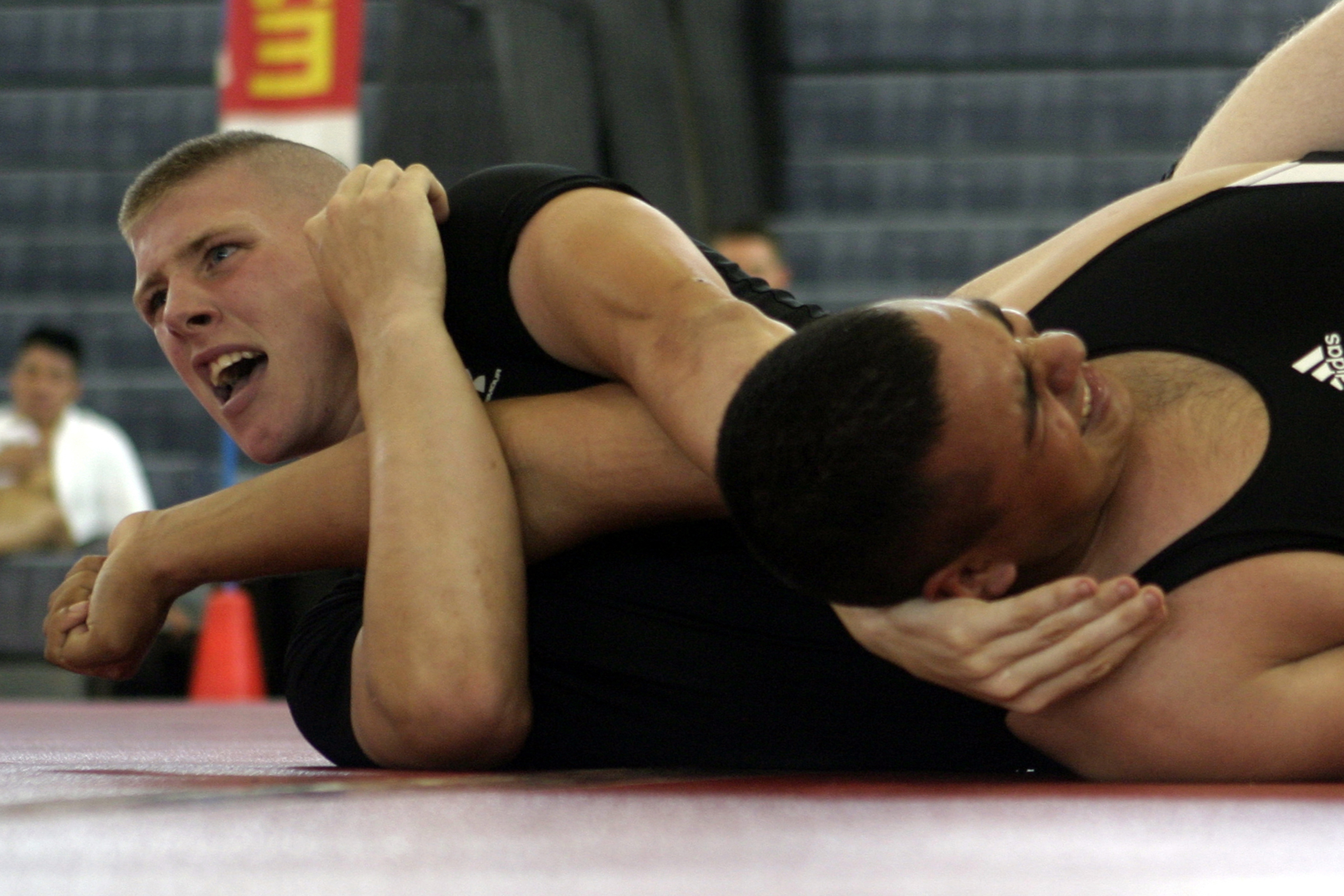In the world of wrestling, a firm grip, a chiseled physique, and a relentless stamina are the ingredients typically associated with the making of a champion. But is that all there is to it? The ensuing paragraphs will unveil a different perspective, transcending the confines of physicality and venturing into the realm of mental discipline in wrestling. This post will emphasize the importance of focus, resilience, and strategic thinking as vital components in the wrestling world, often overshadowed by the physical prowess they accompany.
Often likened to a chess game, wrestling demands an exceptional level of mental discipline and strategic thinking, making it far more complex than a mere display of brute force. The ability to anticipate an opponent’s move, calculate risks, and adapt to rapidly changing circumstances under intense pressure is what often separates a good wrestler from a great one. In the upcoming discussion, the intricacies of strategic thinking in wrestling will be explored, providing insights into how top wrestlers employ tactical maneuvers and adaptive strategies to gain the upper hand.
Additionally, the role of focus and resilience as key elements of mental discipline in wrestling will be delved into. Imagine the unyielding concentration required to stay on the offensive while simultaneously defending against the opponent’s attacks. Or the resilience to persevere through pain, fatigue, and setbacks, transforming them into fuel for victory. These aspects of wrestling, although less visible, are arguably as crucial as physical strength and stamina.
Lastly, practical tips and techniques will be shared on how to cultivate mental discipline for wrestling. Whether you’re an aspiring wrestler aiming to improve your game, a coach seeking innovative training methods, or a fan looking to gain a deeper understanding of the sport, this post promises to equip you with new knowledge and perspectives. By the end, you’ll understand why wrestling is not merely a battle of the bodies, but more importantly, a duel of the minds.
Understanding the Power of the Mind in Wrestling
The art of wrestling is often misconstrued as a purely physical sport. However, the mental aspect plays an equally significant role in shaping a successful wrestler. Let’s delve into how mental discipline in wrestling extends beyond mere physical strength, helping athletes develop focus, resilience, and strategic thinking.

Mental Discipline: The Unseen Aspect of Wrestling
Mental discipline is an underappreciated yet vital part of wrestling. It refers to the ability to remain focused, stay resilient, and think strategically under immense pressure. Here’s how it is indispensable in wrestling:
- Focus: In wrestling, distractions can be costly. A wrestler must be able to concentrate on their opponent, disregarding the cheering crowd, the intimidating environment, and personal anxieties.
- Resilience: Wrestling is as much about getting back up as it is about not being taken down. Resilience helps wrestlers to recover from setbacks and stay determined.
- Strategic Thinking: Wrestling is a game of strategy. Every move and countermove is a result of careful planning and tactical thinking.
Cultivating Mental Discipline in Wrestling
Focus: Building Unwavering Concentration
Concentration is the first step towards mental discipline. It can be achieved through various methods such as mindfulness and meditation. Wrestlers can also use visualization techniques, imagining themselves in the ring, focusing on their moves, and winning the match. This practice helps train the mind to remain concentrated in high-pressure situations.
Resilience: Learning to Bounce Back
Resilience in wrestling means learning to rise after every fall, both literally and figuratively. It’s about understanding that setbacks are part of the process, and they don’t define the wrestler’s potential. This can be nurtured by adopting a positive attitude, learning from mistakes, and viewing challenges as opportunities for growth.
Strategic Thinking: Outsmarting the Opponent
Practice and Experience
Experience plays a key role in developing strategic thinking. The more a wrestler faces different opponents, the better they become at assessing their moves and planning their strategy. Participating in practice matches and learning from experienced wrestlers can provide valuable insights.
Analysis and Adaptation
A good wrestler analyzes their performances, identifies their weak points, and works on them. They adapt their strategies based on the opponent and the situation. This continuous process of analysis and adaptation is central to strategic thinking in wrestling.
In conclusion, mental discipline in wrestling is as crucial as physical strength. It involves developing focus, resilience, and strategic thinking. By mastering these aspects, a wrestler can gain an edge over their opponent, proving that the battle is not just fought in the ring, but also in the mind.
Conclusão
In conclusion, it’s clear that wrestling goes beyond the physical realm. The mental discipline involved is instrumental in molding a successful wrestler. An unwavering focus helps wrestlers tune out distractions and keep their eyes on the prize. Moreover, resilience in this context is the will to keep fighting, to rise after every fall, understanding setbacks as part of the journey rather than the end. Furthermore, strategic thinking is a game-changer. It involves on-the-spot smart decisions, understanding the opponent’s tactics, and tailoring a strategy accordingly. This strategic aspect of wrestling highlights that it is not just about brute strength, but also about planning and tactical thinking. Essentially, experience, analysis, and adaptation also come into play, making wrestling a comprehensive test of physical and mental capabilities. The mastery of these mental aspects can provide a wrestler with a significant advantage over their opponent. Therefore, the battle in wrestling is not only won in the ring but also in the mind, proving the indispensable role of mental discipline in this sport.

